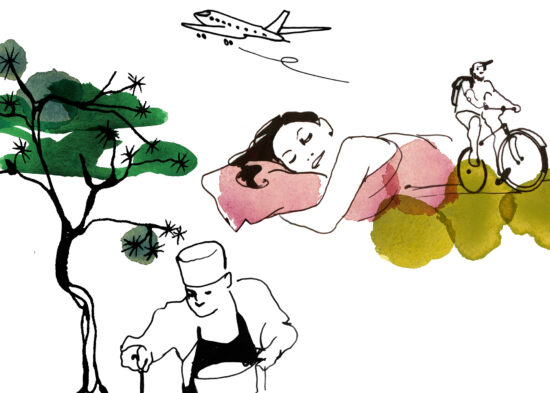Results from the project
The innovation of things in hotels
BFUF Rapport #7 Hur ser morgondagens hotell ut?
Australian and New Zealand Academy of Management, Brisbane 2016 Hotel innovations, non-financial performance and sustainable human resource management
Wajda Wikhamn, Senior Lecturer in Business Administration, the School of Business, Economics and Law at the University of Gothenburg
What is the research project about?
“Very little is known today about how innovations are created and stimulated in the hospitality sector. We will map innovations in the hotel sector and study the way they come about, what they are, whether they are unique and how they then influence the competitive power of businesses.” How will you proceed? “We will interview hotel staff at different levels in a number of companies – top level down – in management, human resources, cleaning, reservations, administration and catering. We will ask them about which new ideas and improvements they have introduced into their work. We will also carry out a survey in the form of questionnaires in order that we can draw general conclusions for the sector as a whole in Sweden.”
Why have you chosen the hotel sector in particular?
“It is a major employer and is the driving force for regional and national growth.” What would be seen as innovations in this context? “They could be innovations in the form of new or improved services, products, working methods and ways of attracting new clients and retaining existing ones.”
Has anyone studied this before?
“From what we have seen, there are no Swedish studies that map innovations specifically in the hotel industry. Research has been done in Sweden on the potential for innovation in a number of other sectors, and with the help of these studies we’ll be able to make interesting comparisons with the hotel sector.”
What is the main challenge?
“The first challenge will be to identify innovation put into practice. Individuals often introduce small but new ideas and improvements in their work without being conscious of the fact that these are indeed innovations. Not all people understand and interpret innovation in the same way. In order to identify examples of innovation and find them to be unique, innovative and significant, we need to define the concept together with those individuals we interview.
“Another challenge is to encourage our respondents to take an interest in collaborating with us. We would like to interview more individuals and categories of staff in one and the same workplace, and time is of course money. The same applies to the survey, which will need to be representative to some degree.”
How can the hospitality sector benefit from this research?
“The research results will be of help at an overall level for the entire hospitality sector by implementing Strategy 2020. This will emphasise innovation as being the most important factor for the sector’s successful development and for ensuring that Sweden won’t lag behind from an international point of view. The sector needs to identify which innovation goals are desirable and make them measurable – and for this we need facts and figures. We will also be able to build up a basis on which the sector can identify and make more efficient the work of innovation at an overall level.”
How can private businesses benefit from this research?
“In order to survive in a future with increased competition, businesses need to be innovative and creative. Mapping will give us a picture of which preconditions might contribute to the creation of a healthy climate of innovation. In that way we can hopefully raise awareness of how to creative innovative businesses and workplaces using limited resources, which is essential for being able to retain and attract skilled staff. The study will examine whether a link exists between the ingenuity of the innovations and the success of the hotels.
Project facts
Project
Hotels as innovative workplaces
Research organization
The School of Business, Economics and Law, the University of Gothenburg
Project Manager
Wajda Wikhamn, Docent, the School of Business, Economics and Law at the University of Gothenburg
Members
John Armbrecht, Researcher, and Tommy D Andersson, Professor, the School of Business, Economics and Law at the University of Gothenburg, and also the Centre for Tourism, together with Björn Remneland-Wikhamn, the School of Business, Economics and Law at the University of Gothenburg
Period
2014 Jul – 2016 Jun
Amount
SEK 1,600,000






